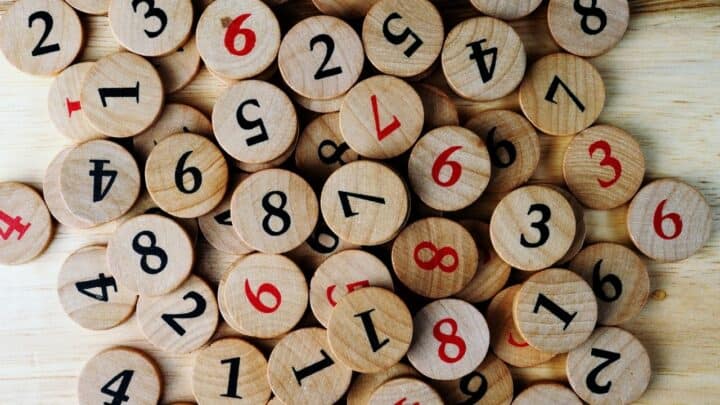One of the things that makes English so intriguing and frustrating is its tendency to borrow from other languages.
This is part of what explains how English became widely diffused.
English never throws anything away. As a result, there are lots of esoteric skills like understanding how to use hence in a sentence.
Another example is the words double, triple and quadruple. Did you know it’s possible to count to an arbitrarily high number using the same pattern?
Well, reader, read on!
What comes after double, triple and quadruple?
Double is two times, triple is three and quadruple is four. Next up is quintuple (five), sextuple (six), septuple (seven), octuple (eight), nonuple (nine) and decuple (ten). After ten, there’s undecuple (eleven), duodecuple (twelve) and tredecuple (thirteen), while a hundred times is a centuple.
The role of Latin in double, triple, quadruple and similar words
Words like double, triple, and quadruple can be either adjectives or verbs and are used to describe something being multiple times more than normal. Although there is no formal grammatical term for this kind of word, for the purposes of this post we’ll be calling them “times” words.
In addition to the fact that all these “times” words can be used to modify a noun or describe an action, they have one other thing in common.
That is that these words are formed by taking the Latin root word for the specific number and adding “-ple” on the end. The word “double” is the only exception to that last part, but even there the pattern holds.<
Really, “double” should be “douple,” but the fact that the -ple follows “d,” a consonant where you have to use your voice box to make sound (called a “voiced consonant”), turns the letter “p” into its voiced counterpart, “b.”
List of words like double, triple and quadruple
So, just how many words like “double” are there? Many people know the most common ones, like double, triple and quadruple. But just how far down does the list go?
We’ve taken the guesswork out of the equation by listing the “times” words that go up to ten and their Latin roots below.
- Quintuple – a multiple of five (from Latin quinque)
- Sextuple – a multiple of six (from Latin sex)
- Septuple – a multiple of seven (from Latin septem)
- Octuple – a multiple of eight (from Latin octo)
- Nonuple – a multiple of nine (from Latin novem)
- Decuple – a multiple of ten (from Latin decem)
Beyond this lofty height, you can keep going by combining your number words. So to talk about a multiple of eleven, you could use the word undecuple, which is “unus” for one plus “decuple” for ten.”
While this works well as a type of party game, it’s important to remember that one of the main purposes of language is to communicate.
You can stare into the abyss of Latin numbering forever if you want, but it’s often simpler and more understandable to just say “ten times as much something” or “multiplied something by ten.”
How to use words like double as an adjective
As noted above, words like double, triple and quadruple can be used as either an adjective or a verb.
As an adjective, these words can be placed directly before a noun to modify it. In most cases, you will need to add “the” to the noun for the sentence to make sense grammatically.
Example Sentences
It’s pretty unlikely that someone could score five times as many points on a test, but that’s what this sentence says. This one has “the” in front of “score.” Saying “She got quintuple score” sounds very strange, sort of like mixing up “a unique” vs “an unique“.
Everyone loves pie. But eight or nine times the amount of pie? That’s possibly too much pie.
Many game shows have bonus rounds where answers are worth more. In this case, they’re worth four times more.
How to use words like double as a verb
To use double and other words as a verb, all you need to remember is that there are two types of verb: intransitive and transitive verbs.
Double, triple, quadruple and their followers are all transitive verbs, which means that you need a direct object to follow them.
In other words, you can’t just say “I sextupled.” There needs to be some specific thing that you are multiplying to use these words as a verb.
It’s also worth noting that for many of the higher-number words, people will get confused if you use them as a verb.
Example Sentences
This might look like it’s an intransitive verb, but it’s actually a transitive verb in passive voice. More actively, you would say that “the burger place quintupled the price.”
A single word to use for any number
All that looking up Latin number words in a dictionary gets tiring pretty quickly. Fortunately, there’s a simpler way to talk about actions or properties that are multiples of the ordinary amount.
If you’ve been paying close attention and are good at word games, you’ll realize that this word shows up a lot in this article, including in the previous sentence actually contained this special word.
Give up? The word is “multiple.” Just like double, triple, and quadruple, multiple is formed by taking a Latin word root (multus, “many”) and adding -ple onto the end of it.
You can take a moment to let that sink in before you go back to your regularly scheduled counting.

Hey fellow Linguaholics! It’s me, Marcel. I am the proud owner of linguaholic.com. Languages have always been my passion and I have studied Linguistics, Computational Linguistics and Sinology at the University of Zurich. It is my utmost pleasure to share with all of you guys what I know about languages and linguistics in general.

